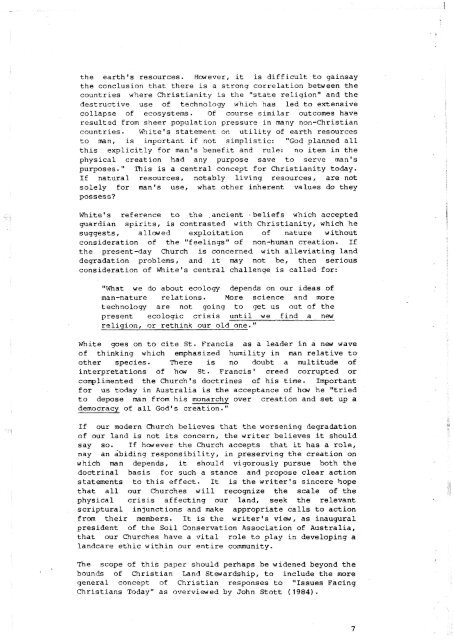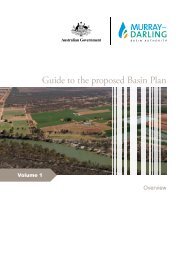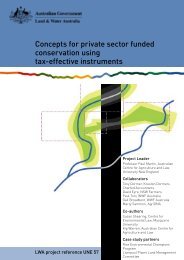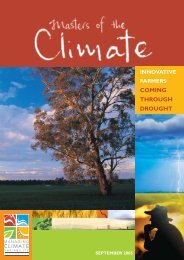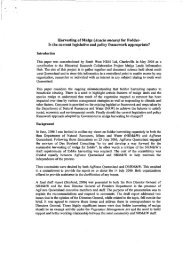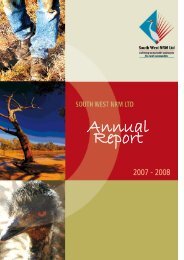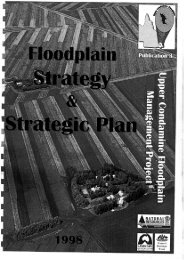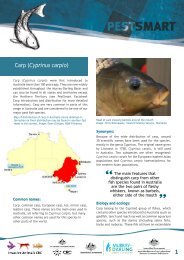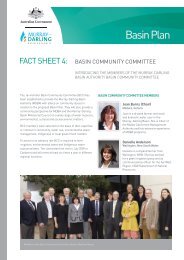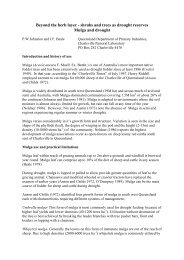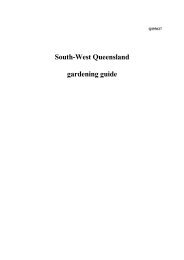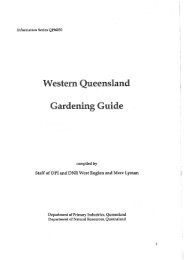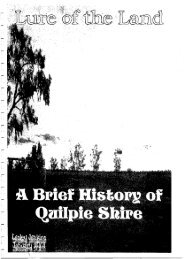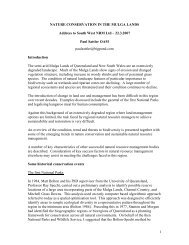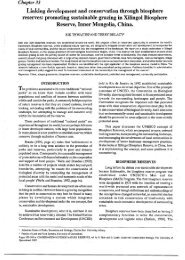soil-conservation-people-religion-and-land.pdf - South West NRM
soil-conservation-people-religion-and-land.pdf - South West NRM
soil-conservation-people-religion-and-land.pdf - South West NRM
You also want an ePaper? Increase the reach of your titles
YUMPU automatically turns print PDFs into web optimized ePapers that Google loves.
the earth's resources. However, it is difficult to gainsay<br />
the conclusion that there is a strong correlation between the<br />
countries where Christianity is the "state <strong>religion</strong>" <strong>and</strong> the<br />
destructive use of technology which has led to extensive<br />
collapse of ecosystems. Of course similar outcomes have<br />
resulted from sheer population pressure in many non-Christian<br />
countries. White's statement on utility of earth resources<br />
to man, is important if not simplistic: "God planned all<br />
this explicitly for man's benefit <strong>and</strong> rule: no item in the<br />
physical creation had any purpose save to serve man's<br />
purposes. " This is a central concept for Christianity today.<br />
If natural resources, notably living resources, are not<br />
solely for man's use, what other inherent values do they<br />
possess?<br />
White's reference to the ,ancient ?beliefs which accepted<br />
guardian spirits, is contrasted with Christianity, which he<br />
suggests, allowed exploitation of nature without<br />
consideration of the "feelings" of non-human creation. If<br />
the present-day Church is concerned with alleviating l<strong>and</strong><br />
degradation problems, <strong>and</strong> it may not be, then serious<br />
consideration of White's central challenge is called for:<br />
"What we do about ecology depends on our ideas of<br />
man-nature relations. More science <strong>and</strong> more<br />
technology are not going to get us out of the<br />
present ecologic crisis until we find a new<br />
<strong>religion</strong>, or rethink our old one."<br />
White goes on to cite St. Francis as a leader in a new wave<br />
of thinking which emphasized humility in man relative to<br />
other species. There is no doubt a multitude of<br />
interpretations of hclw St. Francis' creed corrupted or<br />
complimented the Church's doctrines of his time. Important<br />
for us today in Australia is the acceptance of how he "tried<br />
to depose man from his monarchy over creation <strong>and</strong> set up a<br />
democracy of all God's creation."<br />
If our modern Church believes that the worsening degradation<br />
of our l<strong>and</strong> is not its concern, the writer believes it should<br />
say so. If hmever the Church accepts that it has a role,<br />
nay an abiding responsibility, in preserving the creation on<br />
which man depends, it should vigorously pursue both the<br />
doctrinal basis for such a stance <strong>and</strong> propose clear action<br />
statements to this effect. It is the writer's sincere hope<br />
that all our Churches will recognize the scale of the<br />
physical crisis affecting our l<strong>and</strong>, seek the relevant<br />
scriptural injunctions <strong>and</strong> make appropriate calls to action<br />
from their members. It is the writer's view, as inaugural<br />
president of the Soil Conservation Association of Australia,<br />
that our Churches have a vital role to play in developing a<br />
l<strong>and</strong>care ethic within our entire community.<br />
The scope of this paper should perhaps be widened beyond the<br />
bounds of Christian L<strong>and</strong> Stewardship, to include the more<br />
general concept of Christian responses to "Issues Facing<br />
Christians Today" as overviewed by John Stott ( 1984) .


